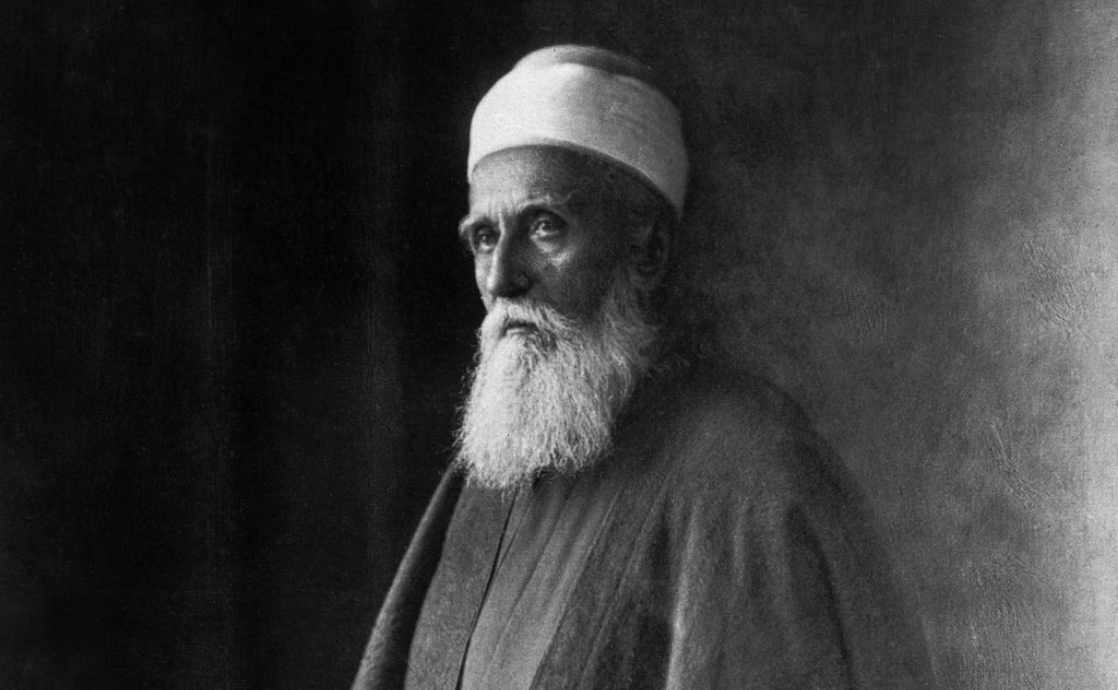The extraordinary life of ‘Abdu’l-Bahá represents a confluence of spiritual leadership, profound intellectual engagement, and tireless commitment to social justice. He is renowned not merely for his role as the son of Bahá’u’lláh, the founder of the Bahá’í Faith, but also for his authentic embodiment of the principles espoused by this global religion. This article endeavors to explore the multifaceted aspects of his life and the reasons his journey captivates the hearts and minds of many.
Born on May 23, 1844, in Tihrán, Persia (modern-day Iran), ‘Abdu’l-Bahá was thrust into an environment rife with persecution and spiritual upheaval. This backdrop undoubtedly played a pivotal role in shaping his character and aspirations. Observers have often noted the paradoxical nature of his existence: a spiritual luminary emerging from a crucible of adversity. The complexities of his upbringing invite contemplation regarding the interplay between personal hardship and greater spiritual destiny.
One curiosity often expressed by those interested in Bahá’í teachings is ‘Abdu’l-Bahá’s revolutionary stance towards social equality. His advocacy for women’s rights, racial unity, and cultural inclusivity was not merely progressive for his time; it was groundbreaking. In an age characterized by deeply entrenched societal norms, his firm assertion that “the earth is but one country, and mankind its citizens” resonates today with palpable urgency. This vision invites reflection on the inherent interconnectedness of humanity, urging a reevaluation of contemporary societal divisions.
A particularly noteworthy aspect of ‘Abdu’l-Bahá’s life is his commitment to education as a tool for empowerment. He understood that the propagation of knowledge is essential for the advancement of any society. In a variety of addresses and writings, he placed great emphasis on the pivotal role of education, especially for women and marginalized communities. This advocacy underscores a fundamental principle of Bahá’í teachings: that the pursuit of knowledge is synonymous with the pursuit of justice. His belief in education serves as a reminder of how foundational it is for the establishment of a just and equitable society.
The period of ‘Abdu’l-Bahá’s leadership is equally significant. His stewardship during the turbulent aftermath of his father’s passing in 1892 set in motion a vital phase for the Bahá’í community. He crafted a framework for the administration of the teachings, ensuring that they could be both preserved and propagated. This endeavor warrants admiration; leadership during such tumultuous transitions requires not only charisma but also a profound sense of duty and purpose. It is this transition that elucidates the intricate dynamics of authority and spiritual governance in the Bahá’í Faith, emphasizing that authentic leadership is founded on service rather than power.
‘Abdu’l-Bahá’s travels, particularly during his journey to the West in the early 20th century, further illuminate his extraordinary life. His lectures across Europe and North America revealed a remarkable capacity to articulate complex spiritual concepts in accessible terms. The frequent observation of his warm demeanor and magnetic personality often led to deeper emotional connections with audiences, many of whom were captivated not only by his words but also by his presence. Therein lies a deeper reasoning for this fascination: he represented a living example of the teachings he espoused. The moral integrity he embodied attracted individuals from various walks of life, making his teachings resonate universally.
The depth of his writings offers yet another realm in which to reflect on his extraordinary life. ‘Abdu’l-Bahá’s literary contributions—from letters and treatises to talks—demonstrate a profound intellectual rigor. His ability to synthesize spiritual tenets with contemporary philosophical discourse reflects not only a keen intellect but also an acute awareness of the evolving human condition. Through his discourse, he invites readers to engage critically with their own lives, encouraging introspection and growth.
Furthermore, the impact of ‘Abdu’l-Bahá’s legacy is observable in contemporary Bahá’í practice. His emphasis on consultation as a mode of decision-making highlights the importance of collective engagement and deliberation. This principle fosters an environment where diverse opinions can coalesce towards constructive solutions, illuminating the path towards community cohesion. In a world fraught with polarization, his teachings inspire a return to dialogue as a fundamental method of conflict resolution and cooperation.
Ultimately, the allure of ‘Abdu’l-Bahá’s life lies in how it encapsulates the essential ideals of the Bahá’í Faith while urging humanity towards transcendence. His unwavering conviction in the power of love, unity, and service to humanity reverberates through the ages, continuously inspiring individuals seeking spiritual fulfillment and social justice. His life exemplifies a profound realization: that through deep commitment to spiritual principles, one can effectuate meaningful changes in both individual lives and society as a whole.
In considering ‘Abdu’l-Bahá’s remarkable journey, it becomes evident that his existence is not merely a historical account but a continuing source of inspiration. Each principle he championed and each challenge he faced resonates with modern audiences, inviting them to engage with the profound teachings that continue to unfold from this extraordinary life. In this light, ‘Abdu’l-Bahá emerges not merely as a historical figure but as a beacon of hope, illuminating the potential for a united and just humanity.
